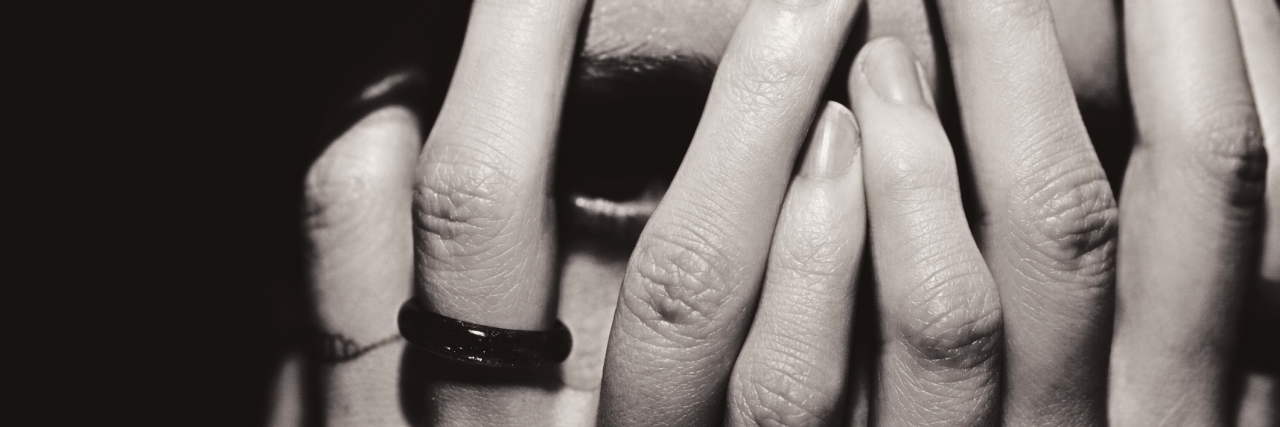Dr. Margaret Rutherford described a category of people who struggle with depression this way:
People with ‘perfectly hidden depression’ are overwhelmed by the idea that anyone might find out they aren’t ‘all that they seem.’ They function far too well. They actively deny the importance of any pain. And carry on.
They keep secret the abuse they endured, or other traumas or loss they experienced. They know it happened, but the impact of it isn’t recognized. The feelings are rigidly stored away in an almost inaccessible place in [their] mind, left to gather dust and be discounted.
When I gave birth to my son, I made a promise to myself that no matter what happened, I would never kill myself. I don’t know that many new parents make this kind of pact, but my mother had threatened suicide from the time I was eight and eventually completed the act when I was 31. And the thing is, by that time I had seen the darkness for myself, I knew the day might come when I’d feel the pull.
The first time I had a major depressive episode, it was of the “typical variety.” I was 19 years old and a freshman in college, and had recently learned the person I loved most in the world could not be with me. I sank under the bedcovers and did not get up for three days.
Fortunately, unlike my brother and me, my children would never imagine they had the type of mom who would kill herself. My family and friends don’t see me that way either.
To illustrate, I had a major depressive episode last summer. It had been a long time and the degree of pain, which had me holding my head and begging it to stop, scared me back into therapy and onto medication. Nothing worked right away, and I struggled for a number of weeks. Late at night, awake and alone in my living room with an empty bottle of wine, I fell back on the promise I made to my son almost 10 years ago.
But like other “perfectly hidden depressives,” I did not take to my bed. I continued working, continued taking care of my children, continued fulfilling community and social obligations. Doing anything else was a massive threat to any remaining sense of self, and frankly, I didn’t want to risk rejection from people who were supposed to care about me.
In my volunteer work for the American Foundation for Suicide Prevention, I see it every day. “Perfectly hidden depressives” are the ones who slip through the cracks. They are the high-achievers, the ones whose lives people envy, until one day they are suddenly gone. “What a loss,” everyone says. “And no one saw it coming.”
Except that you might see it coming, if you are willing to look hard enough. Granted, it’s not easy. Perfectly hidden depressives don’t wave the usual red flags of talking about guns or pills, or giving away prized possessions. In my case, the only clue was that I wasn’t eating and started to drop weight rapidly.
So what’s the advice?
Believe it or not, it’s the same guidance I’d give to anyone who wants to have a meaningful relationship with another human. Keep in touch often, and listen. Consider if your loved one’s behavior patterns have changed. Read between the lines of what they are saying, and not saying.
Ask them: “Are you feeling OK? You don’t seem like yourself.”
Of course, they can lie to you. I’ve done that a lot, because I haven’t trusted that I’d get a positive reaction to the truth. So your goal is to just keep being there, spending time with them so they can see for themselves that you care. Tell them: “I’m not going anywhere.”
If a perfectly hidden depressive does emote in your presence, or confides in you something that’s scary, try not to react too strongly. I cried in front of a few friends last summer, and even in real time, I couldn’t believe it was happening. I was so ashamed and overwhelmed by the sensation that I’d just lost everything. In those moments, I didn’t need a comprehensive plan to fix things. All I wanted to hear was: “I’m not going anywhere.”
Perfectly hidden depressives are just as responsible for their own lives as anyone else, and our loved ones aren’t mind readers. All I’m saying is, we have trouble reaching out, and sometimes it’s incredibly difficult to own up to how weak we’re feeling. The only solution is to pay attention. Keep us on your mind and don’t let too much time go by without checking in. If you do this, you might catch something others will miss. You might prevent a tragedy.
Find more of this authors writing here.
If you or someone you know needs help, visit our suicide prevention resources page.
If you need support right now, call the National Suicide Prevention Lifeline at 1-800-273-8255, the Trevor Project at 1-866-488-7386 or reach the Crisis Text Line by texting “START” to 741-741.
We want to hear your story. Become a Mighty contributor here.
Thinkstock photo via korionov

